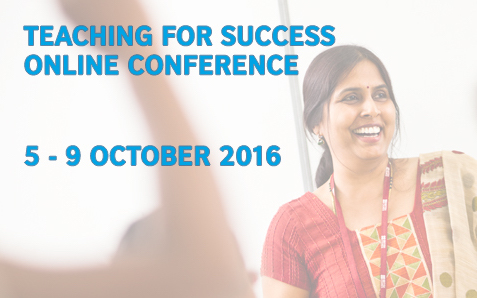
About the webinar
Maha Khochen-Bagshaw - Are our classrooms inclusive?
There has been extensive debate taking place on different platforms by a range of different scholars about the meaning of inclusion and the importance of possessing positive attitudes in order to implement inclusion in practice. In this presentation, the debate on inclusion is moved slightly forward. It focuses on two key questions linked to implementing inclusion in the classroom environment; that is, why teach inclusively and how. To this end, the presentation taps into the value of implementing inclusion in practice. It further demonstrates the role of teachers in meeting the needs of all their students as well as in managing available resources to aid the inclusion of all their students in the teaching and learning process, including those described as having Special Educational Needs. The presentation also delves into the principles of implementing differentiation in teaching and learning, whether in the delivery and assessment models or in classroom activities, so that the different needs of all students can be met. The session will pose a number of examples to stimulate further discussion before it concludes with some hints and tips connected to the practicality of implementing inclusion in the classroom.
Susan Hillyard - Teaching for Diversity in Inclusive Classrooms: The Speaking body in the Empty Space
As the World English Project gains ever more momentum (Graddol 2006) many teachers, all over the world, are experiencing difficulties in dealing with challenging students in their school populations. According to British Council figures (2011) there are an estimated 650 million people with disabilities in the world and, as a consequence, a greater recognition that we should be teaching for diversity and inclusion. However, diversity does not only refer to disability; it can refer to multilingual, multiethnic, multi-religious, multicultural contexts, to those vulnerable learners who may live in dysfunctional families, who are disadvantaged by poverty, who are refugees or who are suffering from long term illnesses which keep them hospitalized or institutionalized for long periods of time and therefore they miss the progressive developmental processes that other students can enjoy. All of these students, and more, have their right to equity to be upheld by whatever education system they are able to attend and therefore teachers need help in finding new ways to approach these challenges.
This presentation addresses these challenges and offers teachers a brief introduction to the theory and some practical activities to start introducing a holistic approach composed of multisensory activities, the SPICE (the Social, Physical, Intellectual, Creative, Emotional developmental processes) of education and active learning tasks. The role of the teacher needs to become that of a facilitator of learning situations while the role of the student must change to becoming that of the protagonist. It recognizes that ALL can learn if the teacher takes into account the “Speaking Body in the Empty Space” which requires only the resources brought to that space by a willing learner and an imaginative, creative teacher. The teacher becomes accountable for meeting the learning needs of all students whatever their condition or the social context from which they come.
About the speakers
Susan Hillyard, B.Ed.(Hons) Warwick University UK, has work experience in seventeen countries as a teacher, Head of Department, Director, speaker, Materials writer, webinar presenter, workshop facilitator, consultant, researcher, Professor and on-line tutor. She was Prof. Language IV in Lenguas Vivas and UTN Teacher Training Colleges, Buenos Aires, Argentina. She has published English through Drama with Helbling, UK, co-authored a Resource Book for Teachers Global Issues for OUP and also TDI-TKT On-line Course for Pearson, New York. She has been involved with two Theatre in Education troupes, based in Buenos Aires, as diction teacher and as an adviser. Former Coordinator, English in Action, Ministry of Education, City of Buenos Aires, Argentina, training 20 teachers through blended learning courses to teach English through Drama in Special Education. Founder and Director of SHELTA, Susan Hillyard’s English Language Teachers’ Academy.
Maha is a qualified teacher specialising in vision impairment and multiple impairments and/or difficulties. In her PhD research, submitted to the UCL, Institute of Education, she has investigated inclusive practices in mainstream schools in Lebanon. Maha has contributed to a range of different projects aimed at building educators' capacities in implementing inclusion. Countries she has provided consultancy services in are located in Europe, East Africa and the Middle East. Her research investigated the influence of English on the lives of disabled people across the Middle East and North Africa region, the attitudes of educators towards inclusion and the needs of students with vision impairment in the UK. Maha sits on the British Council (UK) disability advisory panel.
Thanks!